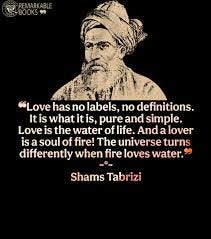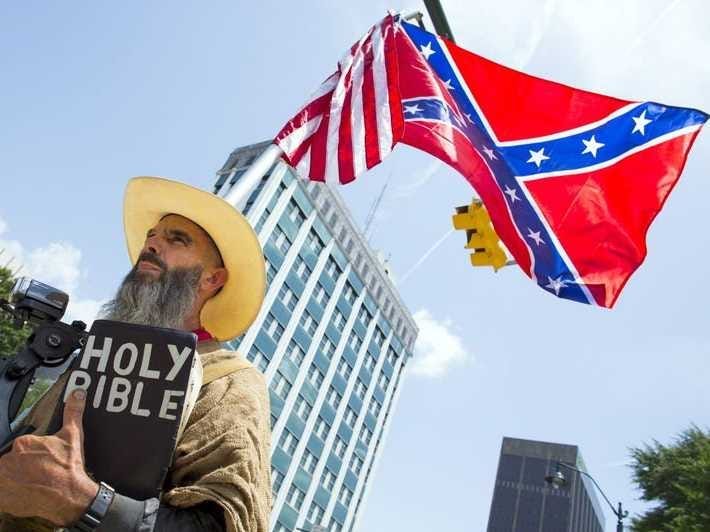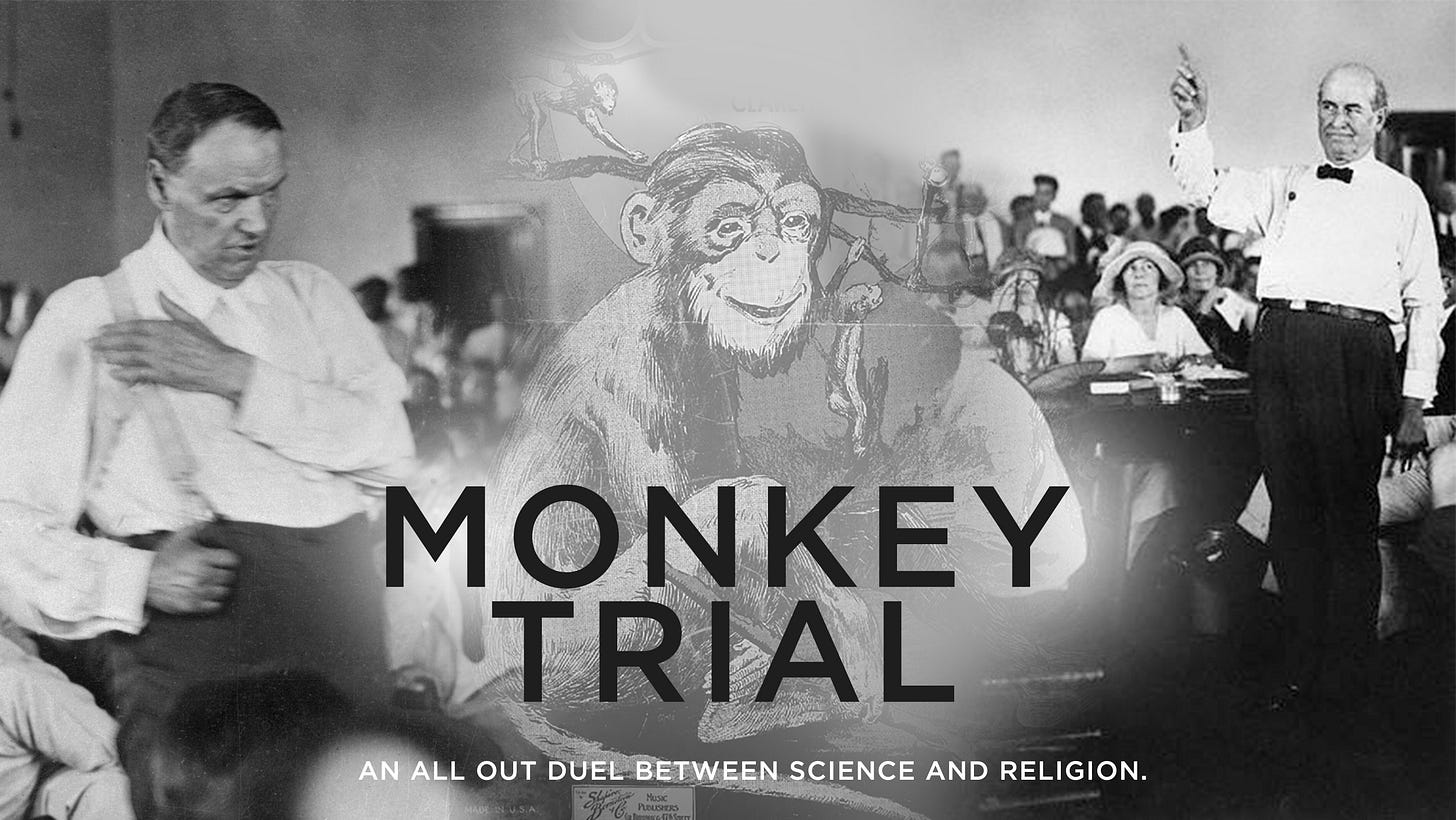Note: In exactly one week, we kick off our 6-week live training Future Proof: Living and Leading in Uncertain Times. We’re going to cover everything from assessing the polycrisis, to media literacy in a post-truth world, to what’s in your Go Bag for WTSHTF.
And though we’ll only be live for 6-weeks, it’s really just the beginning of setting yourself up for the next 10 years of resilience and antifragility for your life, career and family.
We’ve got an awesome group of other leaders on board already, and only a few interview slots remaining before our team is full and we close the doors.
See you on the other side!
***
Onwards to the matter at hand…
Sometime shortly after the Twin Towers came tumbling down, two Samuels told a tale that neatly explained it all.
The first, Harvard professor Samuel Huntington had foresight to his credit.
Several years earlier, he had written his magnum opus, Clash of Civilizations. In it, he’d argued, the future would be determined less by things like trade and politics and more (as his title suggested) by the clash of cultures.
In the same way that J.D. Vance’s Hillbilly Elegy sent the NPR/New Yorker set scrambling for explanations in 2016, Huntington’s Clash of Civilizations became a thinking man’s explainer for all things fiery and foreign after 9/11.
His assertion that Islam has always had “bloody borders” made sense to many shocked by the scale of that recent violence. The fact that most of the suicide pilots had spent time in Europe and America, had lived there, studied there, and still wanted to destroy it, shook liberal multiculturalism to its core.
Hot on his heels, came a whippersnapper New Atheist named Samuel Harris. (this was in those simpler times before celebrity podcasts, or even Twitter 1.0!). In his End of Faith in 2004, he argued that deranged acts of violence were a feature of Islam, not a bug.
“The problem with Islamic fundamentalism,” Harris insisted, “is that the fundamentals of Islam are bad.”
His argument was that where Europe had modernized via Reformations, Revolutions, and Enlightenments to get to our current “post-faith” moment, Islam had remained far closer to its origins–where death to infidels and martyrdom for murderers was foundational.
Harris’ argument broke down into roughly three main points:
Historical Parallelism: Christianity became compatible with modern values due to the Protestant Reformation and Enlightenment.
Islamic Exceptionalism: Islam lacks a similar internal transformation and is thus "medieval."
Incompatibility Thesis: As a result, Islam is incompatible with modern secular democracies.
(and never mind those god-drunk Muslim poets like Hafez and Rumi. Harris would maintain they were the flowery Beatniks of the bunch, with little impact on a history of conquest)
After Hamas’ attacks on Oct. 7th, the idea that Islam is incompatible with modern secular democracy has become even more broadly accepted.
(that’s not to say there haven’t been sustained critiques of the Huntington/Harris thesis from everyone from Edward Said to Francis Fukuyama–but it is to say that what sounded like high-brow racism a quarter century ago and very much unfashionable, has, in our current bout of ‘Merica Mania, become very much en vouge).
But lost in most discussions of clashing civilizations these days, is any tracking of the counter argument.
Namely, does the Christianity that has recently swept into our political sphere via the Heritage Foundation’s Project 2025, the New Apostolic Revival movement, and Silicon Valley’s apocalyptic turn–does it pass the Harris Test either?
Because it’s easy to think of Protestant Christianity and modern liberal democracies as co-evolving, and largely on good terms.
Methodists, Lutherans and Episcopalians (to say nothing of Unitarians and Quakers), have all made varying degrees of peace with Darwin, the scientific revolution, more balanced gender and racial roles, and ecological awareness.
Because they all broke with the Pope and Rome centuries ago, and devoted themselves to a more factual, critical reading of those freshly translated bibles (the thinking goes) they were free to embrace modernity and integrate secular and scientific progress into a balanced and prosperous world view.
It’s Max Weber’s Protestant Work Ethic 101.
But the Christian moment we’re currently experiencing actually traces a very different lineage. And it’s one we would do well to track closely if we’re to truly understand our current moment, and the stakes.
These days, we often assume that to be a “good” Christian means to accept the bible as the incontrovertible word of God, that every word is literally true, and that the purpose of a spiritual life is to develop a direct and unmediated relationship with your own personal Jesus.
It’s not for everybody, but if you want membership in Club Jesus, dems the stakes.
In reality, much of that platform is a recent development in Christian theology and culture. It’s an invention from the early 20th century, not anything that was carved in stone and carried down a mountainside.
As Kurt Andersen writes in his excellent Fantasyland: 500 Years of How America Went Haywire “Fundamentalism in America wasn’t an ancient thing. It was a modern invention...a wounded South clutching its Bible.”
Basically, you can see modern American fundamentalism as a direct outgrowth and blowback to the Civil War itself.
That’s because the North, with its factories, banks, railroads, armories, and global trade networks simply outcompeted the South with its plantations, lazy rivers, slave labor and aristocratic ruling class.
But on the cultural level, the North was mainline Protestantism, while the South was an amalgam of far rowdier and weirder beliefs.
As JFK once supposedly quipped on a trip to England, “you gave Australia your convicts and America your fanatics…it’s really too soon to know who got the worse end of that deal.”
#howboutnow
So by the time you had the infamous Scopes Monkey Trial in Tennessee—the one where Clarence Darrow argued against (fundamentalist pioneer) William Jennings Bryant, it wasn’t just about whether schools could teach evolution or Creationism in that fair state.
It was about whether or not the North, those stinking carpetbagging Reconstructionists, could legislate (and litigate) culture to a proud but wounded Bible clutching South.
That trial was a media circus, but the ramifications were real.
From the early Twentieth century to now, that specific blend of Southern evangelical culture blossomed, and then boomed.
Today’s mega-churches have taken its literal insistence as a gospel of its own, and propagated belief in the laying on of hands, faith healing, exorcisms, demons, angels, speaking in tongues and a holy host of other spiritual eccentricities.
In many important ways, they rejected and explicitly undid the Protestant Reformation. They rejected the ties that bound an open liberal faith and its connections to modern humanism and progress.
They willfully regressed to a more immediate, visceral, and fantastical worldview that was no longer intelligible to the ministers of Boston or New York.
In other words, the battle we’re witnessing right now between Christian nationalists via Project 2025 is a direct descendant of the one that fueled the Scope trial. They are looking to rewind the clock at least that far, and possibly further.
And many of the songs remain the same.
The rights of women and minorities.
The role of evolution vs. creationism.
Care only for believers. Non believers are non-persons
The right to teach our children our own beliefs and not those of the federal government
The desire to undo the entire apparatus of the federal government
The right to battle the moral decay of secular humanists (see: tranny drag queens) in the cities.
The necessity to prepare for a cataclysmic Second Coming which will redefine all else (here and in Israel).
This particular history doesn’t even need to rhyme. It’s note for fucking note!
So let’s return to Sam Harris three step breakdown of Islamic belief. Muslims are so dangerous (according to Sam) for these reasons:
Historical Parallelism: Christianity became compatible with modern values due to the Protestant Reformation and Enlightenment.
Islamic Exceptionalism: Islam lacks a similar internal transformation and is thus "medieval."
Incompatibility Thesis: As a result, Islam is incompatible with modern secular democracies.
And now let’s apply that same checklist to Evangelical Fundamentalism in America
Historic Divergence: Instead of developing in parallel, American Fundamentalism represented a willful schism and a socio-political rejection of Mainline Protestantism and all of its real and perceived alignment with the North. And it’s been building momentum for over a century.
Evangelical Exceptionalism: Fundamentalists reject science, biblical scholarship, and progressive civil rights, and (as some Supreme Court justices have recently advocated) want to revert to medieval or even Old Testament social codes.
Incompatibility Thesis: As a result, Fundamentalist Nationalist Christianity is incompatible. with modern secular democracy (and they are happy to say just as much)
So that’s the argument in a nutshell. If you follow Sam Harris’ and Sam Huntington’s critique of Islam, or like former Muslim and current Christian Ayaan Hirsi Ali, are openly advocating for an Islamic Reformation…
It might be worth turning the other cheek and see how we’re doing a little closer to home. We’ve rejected the last four hundred years of post-Reformation civilization building and are heading for a clash of our own.
Fanatics have stormed the cockpit and they’re flying this thing straight into the Statue of Liberty herself.
God save us all.











My dad and stepmom moved to South Carolina (both of them as Yankee as can be) because they fully believe the South will rise again. They are fundie born-agains with Rapturitis. They have believed and lived this way for decades. This stuff is baked in. Not going anywhere, now that it’s headlining and no longer a weird subculture.
Appreciate all you do to ask us to reflect on how to wisely adapt to stuff like this.
Well Jamie, you’ve done it again—another sharp and brilliant take.
Reading your piece, I found myself thinking about Arthur Blessitt. I wonder if you’ve ever come across him. I remember him vividly from the late 1960s: walking barefoot down Sunset Boulevard with a massive wooden cross, chaining himself to lampposts, preaching on the Strip. He was part of the Jesus movement’s fringe and widely rumored to be an “acid casualty,” though he later denied ever using LSD--although I remember people saying they "dropped" with him.
What’s fascinating is that Blessitt had a little-known but significant encounter with George W. Bush in April 1984. During a revival event called Decision ’84 in Midland, Texas, Bush—then still an oilman—heard Blessitt preaching on the radio. Intrigued, he asked to meet him, and a Bush family friend, Jim Sale, arranged it. According to some accounts, it was during that meeting that Bush decided to commit his life to Jesus—Blessitt was the preacher who prayed with him. But when the Bush family caught wind of it, they quickly introduced W to Billy Graham. The narrative shifted, and history now credits Graham with Bush’s “born again” moment.
Why does any of this matter? Because a close friend of mine, who served as a high-level NSA consultant, sat in on Defense Department meetings with Cheney, Rumsfeld, Wolfowitz—your usual suspects. When the question came up during Iraq War planning, “What’s the exit strategy?” Bush reportedly replied, “Jesus will show us the way.”
It sounds insane, I know—but follow the thread,. Yank it hard enough and you’ll find that one of the most disastrous foreign policy blunders of the 21st century may trace its psychic origins to a barefoot lunatic dragging a twelve-foot wooden cross down Sunset Boulevard, ranting about Jesus. A man the establishment wrote off as just another LSD burnout with a martyr complex and a flair for street theater.
And yet—years later—his gospel wormed its way into the skull of a dry-drunk oilman named George W. Bush, just in time for him to steer the country into a trillion-dollar holy war with no exit plan except divine intervention. “Jesus will show us the way,” he said. Sweet Jesus.
So yes, this current Christian fever dream is bizarre—of course it is—but it’s not new. It’s just the latest chapter in a long saga of messianic delusion and backroom prophecy. How many more of these rogue saints and shadow preachers are out there, whispering in the ears of men with nuclear launch codes?
Hell, I’ve lost count.